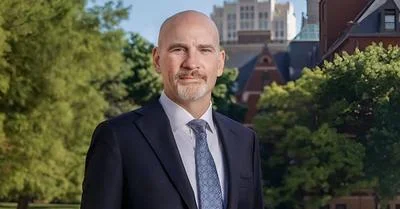Connie Farrow, Executive Director, Patients Come First - Missouri | LinkedIn
Connie Farrow, Executive Director, Patients Come First - Missouri | LinkedIn
Patients Come First’s Missouri Executive Director Connie Farrow believes that a new law to assist lower-income residents statewide in having access to discounted prescription drugs “doesn’t seem to do the job” her organization had been hoping for.
The bill in question, Senate Bill 751, was not signed by Gov. Mike Parson, but it is scheduled to become law on Aug. 28. It restricts 340B Drug Pricing Program contracts between Missouri hospitals, healthcare centers and local pharmacies.
“We urge policymakers to only put the most thoughtful legislation forward to reform the program, and there are concerns this may not have patient interest in mind. But yes, this bill doesn’t seem to do the job we were hoping for in terms of requiring cost savings to be passed onto patients and increasing transparency of how qualifying healthcare entities use the discounts they receive,” Farrow told Show-Me State Times.
The 340B Program requires pharmaceutical manufacturers to sell outpatient drugs at a discount to eligible health care organizations, and was established in 1992. Entities affiliated with the 340B Program can then use the cost savings to fund essential services, such as free or low-cost medication assistance, expanded access to healthcare and community outreach initiatives.
Some say communities and patients most in need are not the ones benefiting from the program’s intended savings, but rather, the companies enrolled in the 340B Program are – and that the entire program should be subject to comprehensive federal reform.
But State Sen. Justin Brown (R-Rolla), the author of Senate Bill 751, explained his legislation puts patients first, by ensuring for them to receive better access to discounted prescription drugs in their local areas.
“This program has been important to the financial viability of many of our rural providers. In the past decade, 10 [Missouri] hospitals have closed and many others have operated a loss. My legislation can mean the difference between whether or not a hospital stays open or closes,” Brown said to the Special Committee on Public Policy at a previous hearing.
Farrow added that Missouri residents who have been traditionally under-served – the primary group who the 340B Program was intended to help – must remain the top focus of state lawmakers.
“Access to affordable medicines is critical, especially to the impoverished in the underserved communities that the 340B program was intended to help. Patients on the receiving end of this program already face significant barriers to care, including being able to afford treatments, residing in rural communities with fewer care facilities and various adverse health outcomes. When discounts don’t reach patients, then the program is not functioning as it should, and it’s reasonable to suggest reform is in order,” said Farrow.
“We are encouraged that various reforms to help limit these unintended consequences and encourage hospitals to use the drug discounts to advance the program’s goals are being proposed by federal lawmakers. It’s imperative that our elected officials keep the interests of our most vulnerable patients at the forefront of all discussions concerning the 340B program because it is a lifeline for many impoverished citizens in Missouri and beyond.”
Farrow stated patients of all socioeconomic backgrounds must be afforded necessary care, when they require it.
“We should all agree that patients of all economic backgrounds must be afforded the opportunity to receive the high-quality care they need, when they need it, especially as it is imperative to improving health outcomes in rural and underserved communities,” she said.




 Alerts Sign-up
Alerts Sign-up